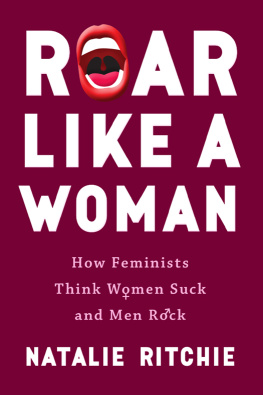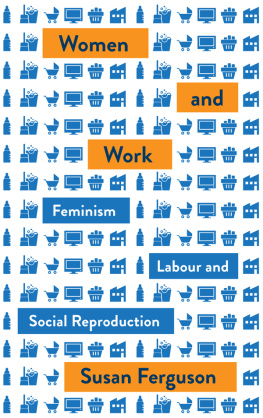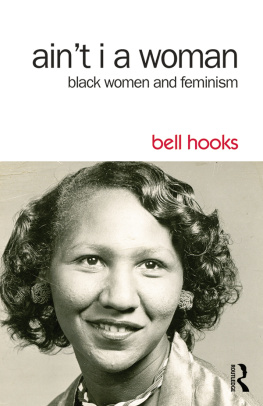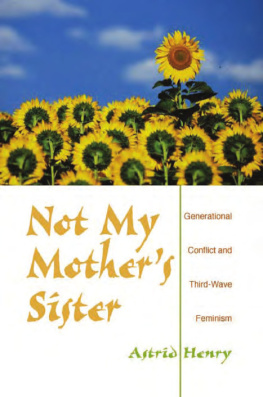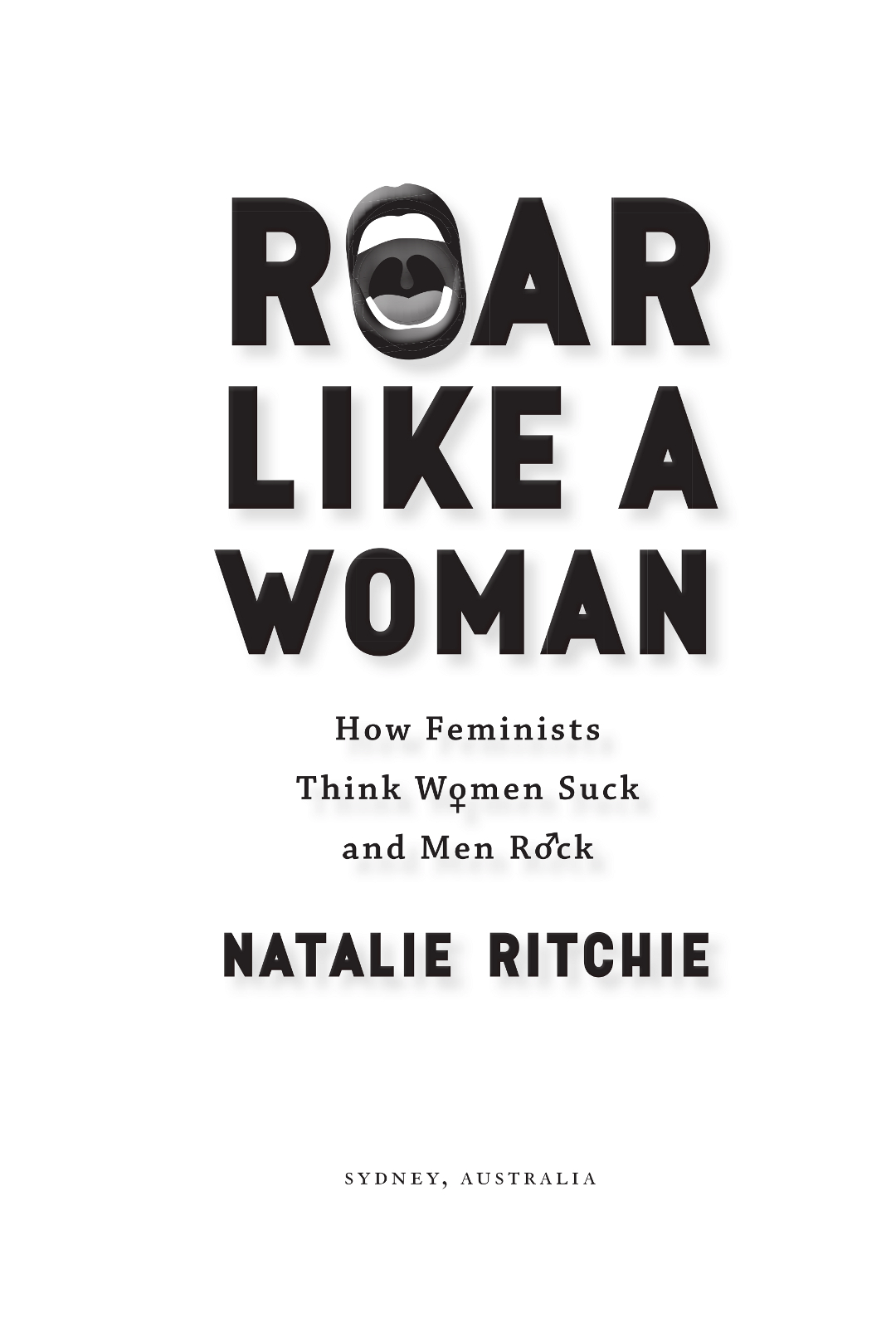roarlikeawoman.com
ISBN: 978-0-6480038-1-6
About the Author
Natalie Ritchie is a mother of two school-age sons. She is a former media relations consultant and travel writer, and is features editor for Australias biggest parenting magazine. She lives in Sydney, Australia.
She would love to hear from you at
To my grandmothers,
Elsie Kruger
and
Joyce Lee
CONTENTS
Preface
The women and men I quote or describe in these pages are real, but their names, and in some cases their occupation or the sex of their children, have been changed to preserve their privacy. I have not been following my fellow parents around with a notebook and voice recorder all my years as a mother, so I may not have quoted them word-perfectly. However, their words as related are true to the spirit of what they said.
This book makes occasional reference to God. Take those references literally, only to the extent that you want to. Swap in the Universe or whatever higher power you care to recognize, as you like.
N.R.
And What Do You Do?
And what do you do?
My inquisitor was a feminist marketing director for an eight-figure non-profit outfit working to improve the lives of Third World children. She and I were at an evening cocktail gathering of company directors and senior managers from the businesses which sponsored her charity, partners from the law firms which provided bona fide services to her organization, high-profile media, and politicians. Waiters moved through the crowd as we overlooked the city lights far below us from our uptown premises on the thirty-first floor. Achievement and power hung in the air.
I am a mother, I replied.
Her eyes widened. She frowned. Then she shook her head with swift little side-to-sides. She looked at me in disbelief, then alarm. Had she just heard me offer up motherhood as a real occupation, without any evidence of a man-identical career as a backstop to shore up my acceptability? On seeing I was serious, she turned to jelly, and nearly wobbled off her feet.
A mother? I could see her thinking. Is she for real? Mothers give birth to and shape the lives of children; what a waste of time! A mother is a woman! Women are not legitimate human beings. Everyone knows that! Everyone knows that, to be legitimate, a woman must secure a paid job in the workplace alongside men. Only men, and women who do what men do, live in the truth. What kind of freak could be so out of touch as to not know what an embarrassment she is to herself?
She leaned toward me. Her cold smile pretended to be amused, as if I had misunderstood her question, and couldnt possibly have meant to reply as I did. Speaking with condescension and disapproval, as if I were little more than a child myself, she said:
Yes, but what do you do?
Did this exchange take place? No. I made it up. But it might have happened, mightnt it? It reads like a real event because it takes place in many gatherings, in many sectors, in many cities and countries in the developed world. Chances are, if you have ever been a stay-at-home mother any time in the last 40 years, that some variant of this scene has happened to you. Probably more than once.
Every mother knows what I do as a mother, because they do it too. Yet the denial of motherhoods workload and value in this scene above is embedded in our culture. Knowledge of what mothers do is hidden to all except other mothers. In those first 48 hours or so after her first childs birth, a mother enters a new and vastly changed reality that will last for the next 20 years. It will be a world of suffering and unremitting effort and sacrifice and hyper-responsibility. Therell be lots of good things, too, like joy, hilarity and horizonless love.
Feminism, and society at large, will almost entirely ignore her new circumstances. As if that werent bad enough, her status will switch from valid (career-woman) to non-valid (stay-at-home mother). Almost from that very moment, feminism will hound her to go back to work.
If and when she tries to do that, she will re-enter a working world utterly unmade for mothers. Workplace timetables are designed for the childless, and will not budge to suit her. The tax system will treat her as a man, though her financial life-path is dramatically different to his. She cannot leave the office three hours early to take her six-year-old to the dentist, because the workplace says that paid work is serious and that safeguarding her childrens teeth is not. She cannot have her children come by the office after school, because an invisible sign outside the workplace door says Only Women Without Kids and Mothers Who Act Like Women Without Kids May Work Here; No Mothers Who Actually Act Like Mothers by Having Kids in Their Presence Allowed. Her employer may free up floor-space for shower cubicles so workers can cycle to work, but will refuse her request for a play-lounge where toddlers and teens can hang out after school in their mothers company while she works. Not that she would dare make that request.
This is not how a feminist world was supposed to look.
You would think that, with the advent of the feminist era, motherhood would take pride of place as the worlds most respected job. You would assume that workplace spaces and timetables would transmogrify into mother-friendly shapes. You would think that womens massive contribution as home-makers would step forward out of the shadows of living room recesses into the light of public acclaim. You could expect that our institutions, our workplaces, our financial products, our civic architecture, our social customs, our weekly schedules would transform into a marvelous new womanesque pattern that wrapped itself around her domestic reality as housewife and mother (and parceled out that immense domestic reality more equally to men). You might expect to celebrate the onset of an age in which womens feminine strengthsnot just our intellect which is equal to a mans, but our connectedness, our undying engagement with emotional truth, our limitless capacity for hard work 24/7 x 365, our embodiment of peace and lovecould glory in the same recognition our society awards to the qualities of men, who taken as a sex possess none of these strengths, at least not in the same quality and quantity.
But it was not to be. Instead of bringing womens supreme contribution as mothers and housewives out into the public gaze, feminism ridiculed and suppressed it. Instead of advocating for feminized working hours to accommodate home-makers and mothers, feminists resoundingly reinforced the existing masculine schedule. Instead of calling for a feminized social infrastructure, be it a woman-only taxi service, breastfeeding rooms at the mall, or customs like a go to the head of the queue policy for mothers grappling with toddlers at the airport check-in desk, feminism focused almost solely on bulldozing women into careers alongside men. That gigantic issue, child care, was never a serious item on their agenda.
In fact, feminism morphed into the very opposite of what it set out to be. Instead of rejecting the oppression of women, feminists rejected women themselves. They laid waste to womanhoods powers, and handed women nothing but mens powers in their place. Feminism became masculinism.
BORN IN 1966, I HAVE fullyall too fullylived the feminist life. Until my children were born in 2003 and 2004, I worked full-time as a media relations consultant in the tourism industry, and jetted around the world as a freelance travel writer, always for free, much of the time in first class. Measured by the feminist yardstick, it was a glamorous and successful life. Behind the empowered facade, however, I was unhappy. I was over-worked. Like just about every woman, I already had a job as a home-maker, to which feminism turned a blind eye. I was charged with cooking meals for two nightly. Paid work displaced the time I needed to plan, shop for, and cook dinner. I was cooking too late in the evening, when I was over-hungry and past a comfortable eating time, and when I needed to attend to personal affairs like migrating data from my old laptop to the new one, or researching a new cell phone contract, or hand-washing the sweaters to put them away for summer. That pushed those tasks on to Saturdays, when I needed to do the errands and grocery shopping and laundry for two, which typically required several days in any case. That squashed more of the errands and grocery shopping and laundry on to Sundays, when I badly needed a rest-day. That pushed the rest-day into midweek, when I went without a rest-day because I was working five days. I lived in a state of permanent frustration at the great feminist denial that housework is just thatwork.

